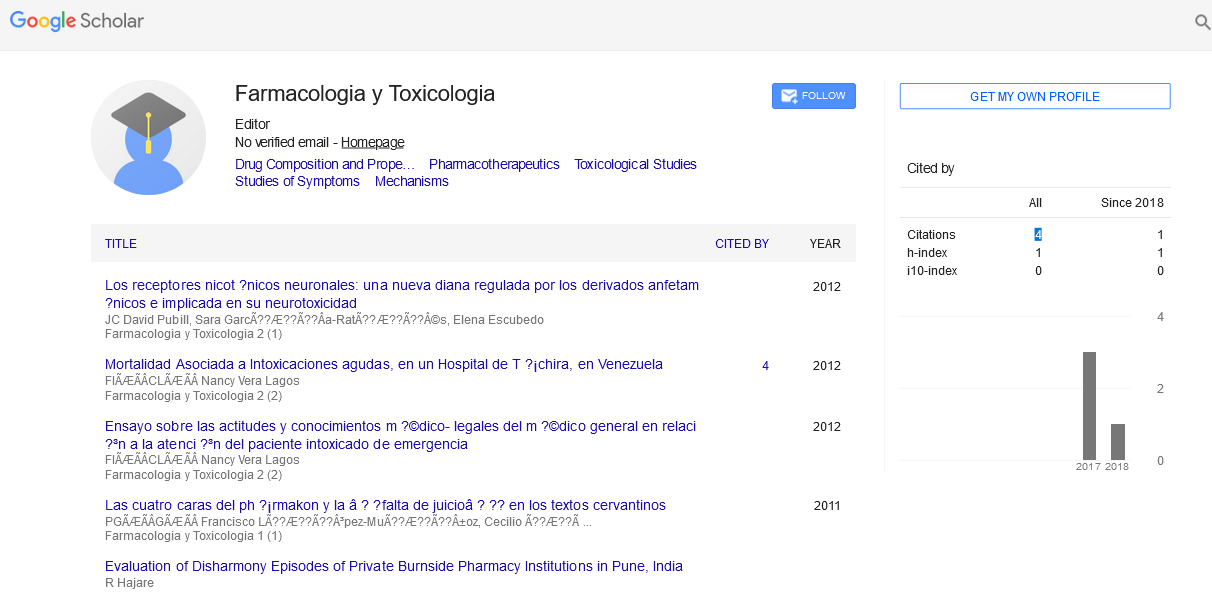Mini Review - (2023) Volume 13, Issue 3
Clinical Assessments: A Crucial Tool in Modern Healthcare
Dr. Roy Kamishaki*
Department of Business Management, Poole College of Management, North Carolina State University, Raleigh, NC 27695, USA
*Correspondence:
Dr. Roy Kamishaki, Department of Business Management, Poole College of Management, North Carolina State University, Raleigh, NC 27695,
USA,
Email:
Received: 01-Jun-2023, Manuscript No. ipft-23-13838;
Editor assigned: 05-Jun-2023, Pre QC No. P-23-13838;
Reviewed: 20-Jun-2023, QC No. Q-23-13838;
Revised: 23-Jun-2023, Manuscript No. R-23-13838;
Published:
30-Jun-2023
Abstract
Clinical assessments are a critical aspect of healthcare, serving as a comprehensive means of gathering essential information about a patient's health status. These assessments involve a systematic process of evaluating physical, mental, and emotional well-being through various techniques and standardized tools. The primary purpose of clinical assessments is to aid healthcare professionals in diagnosing medical conditions, determining treatment suitability, and monitoring treatment progress. Physical assessments form a significant part of clinical evaluations, enabling healthcare providers to examine vital signs, measure body mass index (BMI), assess reflexes, and examine organ systems. By conducting thorough physical assessments, clinicians can identify physical illnesses, detect abnormalities, and monitor overall health. This data is invaluable in guiding treatment decisions and ensuring appropriate interventions. Psychological assessments are another crucial aspect of clinical evaluations, focusing on mental and emotional well-being. These assessments employ structured interviews, questionnaires, and standardized psychological tests to assess cognitive abilities, personality traits, emotional functioning, and behavioral patterns. Psychological assessments play a vital role in diagnosing mental health disorders, guiding therapeutic approaches, and evaluating treatment effectiveness [1, 2].
INTRODUCTION
Diagnostic assessments play a pivotal role in confirming
or ruling out specific medical conditions or diseases.
They encompass a combination of physical examinations,
laboratory tests, imaging studies, and other diagnostic
tools. These assessments are crucial for accurate diagnoses,
enabling healthcare professionals to initiate appropriate
treatment plans promptly. Diagnostic assessments
are continuously evolving, incorporating advanced
technologies and innovative methodologies to improve
accuracy and efficiency.
Functional assessments focus on evaluating an individual's
ability to perform daily activities and assess their level of
independence. Particularly significant in geriatric care,
rehabilitation settings, and chronic illness management,
functional assessments help healthcare professionals
identify limitations, design personalized treatment plans,
and track functional progress over time. By considering
an individual's functional abilities, clinicians can tailor
interventions and therapies to promote independence and
improve overall quality of life [3].
Clinical assessments offer numerous benefits to both
healthcare professionals and patients. They provide
a structured approach to gathering data, ensuring
that critical information is not overlooked. Through
comprehensive assessments, clinicians can make accurate
diagnoses, customize treatment plans to individual needs,
and monitor treatment progress effectively. Additionally,
clinical assessments facilitate improved communication
and engagement between healthcare providers and patients,
leading to better collaboration and shared decision-making.
While clinical assessments offer substantial benefits, they
also have certain limitations. The accuracy and reliability
of assessments can be influenced by factors such as the
quality of the tools used, the experience and expertise of the
healthcare professional administering the assessment, and
the patient's willingness to provide accurate information.
Additionally, assessments may be time-consuming and
require specialized training and resources, limiting their
widespread implementation [4].
DISCUSSION
Clinical assessments play a pivotal role in modern healthcare,
enabling healthcare professionals to evaluate, diagnose,
and monitor patients' physical, mental, and emotional
well-being. These assessments involve a systematic process
of gathering information, employing various techniques,
and using standardized tools to obtain a comprehensive
understanding of a patient's condition. With their ability
to provide valuable insights, clinical assessments are indispensable in guiding treatment decisions, measuring
treatment outcomes, and improving overall patient care.
The Purpose of clinical assessments
The primary purpose of clinical assessments is to gather
relevant data about a patient's health status. These
assessments aid in the identification of medical conditions,
assessment of symptom severity, determination of treatment
suitability, and monitoring of treatment progress over
time. They help healthcare professionals make informed
decisions regarding appropriate interventions, therapies,
and medications, leading to improved patient outcomes
[5, 6].
Types of Clinical Assessments
Physical assessments: These assessments focus on
examining the physical aspects of a patient's health.
They involve evaluating vital signs, measuring body mass
index (BMI), assessing reflexes, and examining organ
systems. Physical assessments are particularly useful in
diagnosing physical illnesses, identifying abnormalities,
and monitoring overall health.
Psychological assessments: Psychological assessments
delve into a patient's mental and emotional well-being. They
involve the use of structured interviews, questionnaires, and
standardized psychological tests to assess various domains
such as cognitive abilities, personality traits, emotional
functioning, and behavioral patterns. Psychological
assessments aid in diagnosing mental health disorders,
guiding therapeutic approaches, and evaluating treatment
effectiveness.
Diagnostic assessments: Diagnostic assessments focus on
determining the presence or absence of specific medical
conditions or diseases. They involve a combination of
physical examinations, laboratory tests, imaging studies,
and other diagnostic tools. These assessments are vital
for accurate diagnoses and the initiation of appropriate
treatment plans.
Functional assessments: Functional assessments evaluate
an individual's ability to perform daily activities and assess
their level of independence. These assessments are often
used in geriatric care, rehabilitation settings, and chronic
illness management. They help healthcare professionals
identify limitations, design personalized treatment plans, and track functional progress over time.
Benefits and Limitations
Clinical assessments offer numerous benefits to both
healthcare professionals and patients. They provide a
structured approach to collecting data, ensuring that
important information is not overlooked. They help
clinicians in formulating accurate diagnoses, tailoring
treatment plans to individual needs, and monitoring
treatment progress. Additionally, clinical assessments can
enhance communication between healthcare providers and
patients, leading to better patient engagement and shared
decision-making [7, 8].
However, clinical assessments also have certain limitations.
They are influenced by various factors, such as the accuracy
of the tools used, the experience and expertise of the
healthcare professional administering the assessment, and
the patient's willingness to provide accurate information.
Additionally, assessments can be time-consuming and
may require specialized training and resources, leading to
potential limitations in their widespread implementation
[9, 10].
CONCLUSION
Clinical assessments are indispensable tools in modern
healthcare, enabling healthcare professionals to gather
crucial information about patients' health status, diagnose
medical conditions, evaluate treatment outcomes, and
improve overall patient care. Through a combination
of physical, psychological, diagnostic, and functional
assessments, healthcare professionals can make informed
decisions, provide personalized care, and enhance
patient outcomes. While clinical assessments have their
limitations, on-going advancements in assessment tools
and methodologies continue to improve their accuracy,
reliability, and accessibility, making them an integral part
of healthcare practice.
ACKNOWLEDGMENT
None
CONFLICT OF INTEREST
No conflict of interest to declare about this work.
REFERENCES
- Jaeken J, Hennet T, Matthijs G, et al. CDG nomenclature: time for a change. Biochim Biophys Acta.2009;1792(1): 825-826.
Indexed at, Google Scholar, Crossref
- Faiyaz-Ul-Haque M, Ahmad W, Zaidi SH. Novel mutations in the EXT1 gene in two consanguineous families affected with multiple hereditary exostoses (familial osteochondromatosis). Clinical Genetics.2008; 66(2): 144-151.
Indexed at, Google Scholar, Crossref
- Schmale GA, Conrad EU, Raskind WH. the natural history of hereditary multiple exostoses. J Bone Jt Surg.1994; 76(2): 986-992.
Indexed at, Google Scholar, Crossref
- Kivioja A, Ervasti H, Kinnunen J, et al. Chondrosarcoma in a family with multiple hereditary exostoses. The Journal of Bone and Joint Surgery. British Volume.2000; 82(5): 261-266.
Indexed at, Google Scholar, Crossref
- Stieber JR, Dormans JP. Manifestations of hereditary multiple exostoses. J Am Acad Orthop Surg. 2005; 13(2): 110-120.
Indexed at, Google Scholar, Crossref
- Zak BM, Crawford BE, Esko JD. Hereditary multiple exostoses and heparan sulfate polymerization. Biochim Biophys Acta-Gen Subj.2002; 1573(4): 346-355.
Indexed at, Google Scholar, Crossref
- Le Merrer M, Legeai-Mallet L, et al. A gene for hereditary multiple exostoses maps to chromosome 19p. Hum Mol Genet. 1994; 3(5): 717–722.
Indexed at, Google Scholar, Crossref
- Alvarez CM, De Vera MA, Heslip TR. Evaluation of the anatomic burden of patients with hereditary multiple exostoses. Clin Orthop Relat Res. 2007; 462(4): 73-79.
Indexed at, Google Scholar, Crossref
- Wu YQ, Heutink P, de Vries BB, et al. Assignment of a second locus for multiple exostoses to the pericentromeric region of chromosome 11. Hum Mol Genet.1994; 3(5): 167-171.
Indexed at, Google Scholar, Crossref
- Irie F, Badie-Mahdavi H, Yamaguchi Y. Autism-like socio-communicative deficits and stereotypies in mice lacking heparan sulfate. Proc Natl Acad Sci.2012; 109(4): 5052-5056.
Indexed at, Google Scholar, Crossref





